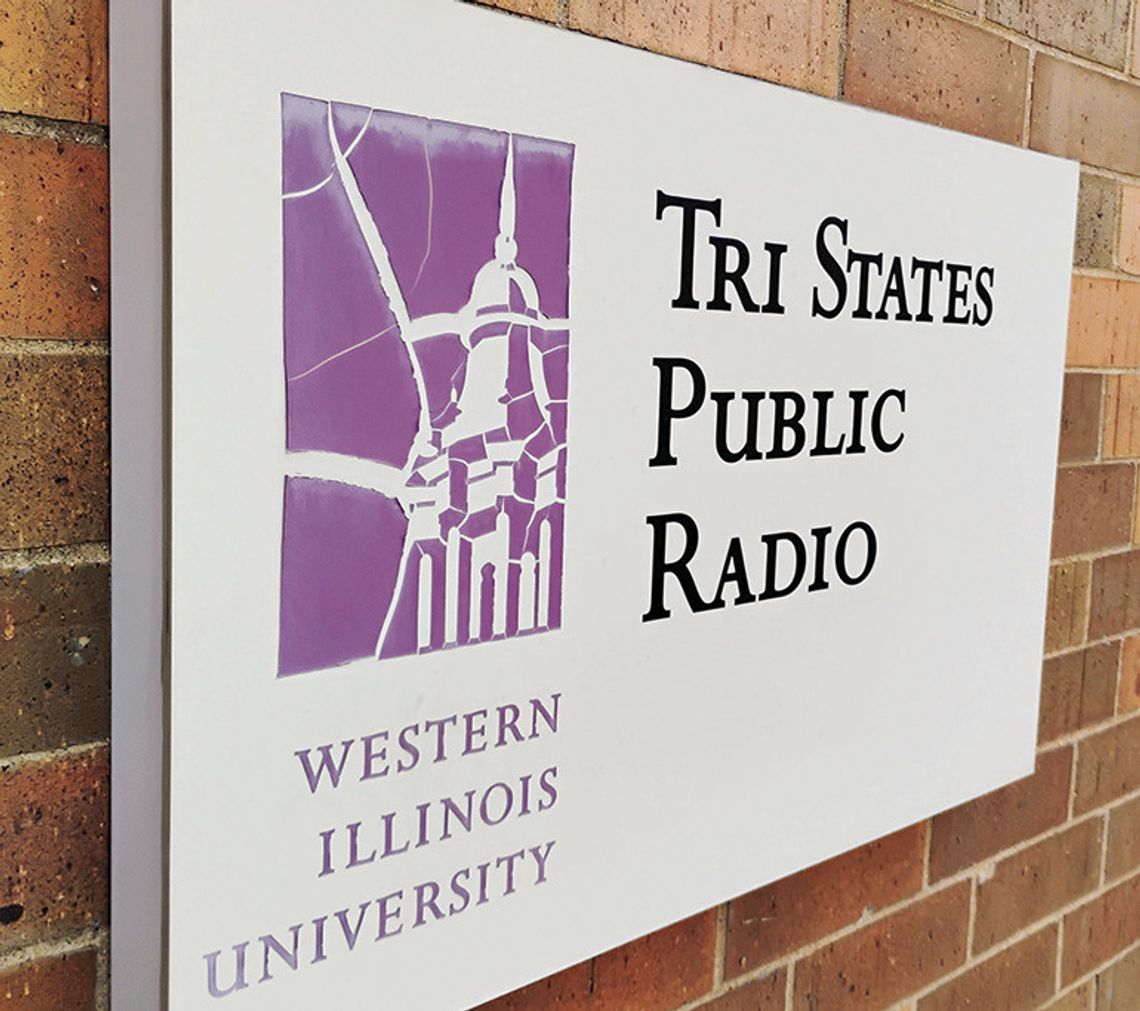Western Illinois University's Tri States Public Radio (TSPR) WIUM will lose an immediate $200,000 annually after President Donald Trump ordered a bill rescinding federal funds for public broadcasting, according to station director Heather Norman.
The Corporation for Public Broadcasting grant was a major source of funding for National Public Radio affiliates nationwide. Norman said the station will also lose indirect support from the losses of other NPR affiliates.
"This will be a large disruption to the whole system," Norman said. "There is no way to know all the ways we will be affected at this time. We have the ability to hold on while we figure out how to provide services without federal support and see what the new public media landscape looks like. We are part of a system and we are not sure how the system will react. While we can survive while conversations are held, we don’t know what the costs will be long term."
TSPR covers a wide swath of western Illinois, southeastern Iowa and northwestern Missouri, including Macomb, Galesburg, Beardstown and Burlington. Its studios are located at 320 W. University Drive in Macomb.
There are also bureaus in Keokuk and at Knox College in Galesburg. It employs a staff of at least eight, including news director Rich Egger, who's been with the station since 1998, and on-air voices Jane Carlson, Michael Murray, Ken Zahnle and Kyra Dean.
"TSPR is a valuable source of news and information that is free and accessible to all," Norman said. "We are also a source of music that is not available other places on the dial – music that is curated by humans, not algorithms. We provide information in emergencies, which was true in the active shooting incident that occurred in Macomb not long ago. We aim to keep communities informed and connected. Cuts to our funding will make all of this more difficult."
Former TSPR reporter and WIU graduate Alex Degman, who is now at Chicago's NPR station WBEZ covering government, said Macomb's member station is also an important part of education to students.
“I feel like a broken record at this point but I wouldn’t be where I am today if it weren’t for Tri States Public Radio,' he said. 'In my undergrad years they seemed to spend as much time training future journalists as they did putting together daily newscasts for the general public. It was real world experience that barely exists for journalism students anymore outside of specialized programs, these cuts are just going to make the opportunities even fewer.”
Congress has backed the bill, which rescinds a total of $9 billion to NPR and PBS member stations, along with $7 billion in foreign aid. Trump has criticized NPR in particular, saying he believes its coverage is biased against him.
“For decades, Republicans have promised to cut NPR, but have never done it, until now,” he told the media.
Norman said NPR member stations apply safeguards to ensure fairness in reporting.
"First, I think it is almost impossible to have completely unbiased news," she said when asked for a response to Trump's allegation of bias. "Everyone is human and we carry our thoughts with us. That being said, I believe public media does the best job of trying to present a fair view of issues. NPR is the only media outlet that still employs a public editor. The public editor’s job is to examine when people have questions about NPR's reporting. NPR also took to heart what they were hearing from critics. They now hold quarterly editorial meetings with their member stations and have hired seven editors whose job is to make sure there is fairness in reporting."
Norman said she believes NPR is, overall, the most trusted news source on both sides of a political divide.
"Public media’s job is to tell the stories of all Americans, which means you might hear something that is unfamiliar to you or you are not that comfortable with," she said. "I think this is sometimes viewed as bias, when it's just presenting issues from multiple viewpoints."
TSPR was established in 1956 as WWKS, located in WIU's Tillman Hall, broadcasting educational programming. In 1978 it became WIUM, adding music and readings from local newspapers. The service was inspired and initiated by Helen L. Wear, the first blind woman to graduate from Western Illinois University, according to TSPR's website.









